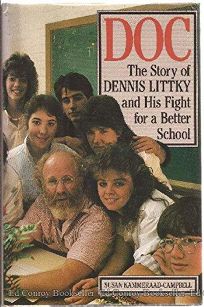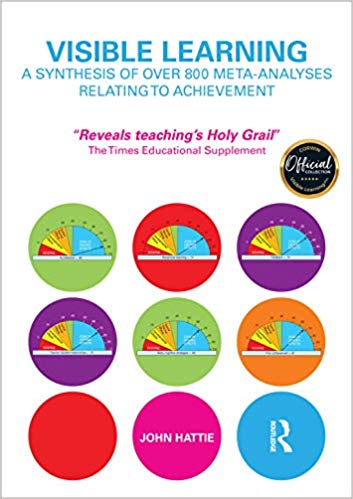The sadness, the feeling of loss, didn’t really hit me until today.
Two weeks ago our governor moved Vermont school online until April 3rd. Then three days ago he closed schools for the rest of the year.
Three weeks ago I was driving to school, teaching students, grading essays, socializing with colleagues. Yesterday I was told I had a three-day window to reenter the school building to pack up my room for the summer.
I hadn’t been back since a week ago Tuesday, when most students had already started staying home, when I’d already begun washing my hands so often they dried and cracked, when I’d already begun looking at any new door handle with alarm, when I’d been in such a rush to get away from people that I hadn’t really gotten to say goodbye to any of my students or colleagues. Besides, it wasn’t really goodbye. It might be mid-April or even early May — but we’d be back. But now we won’t.
That’s what really hit me when I pulled into the parking lot this morning and walked toward what was so recently this big, vibrant school, so recently a place humming with 800 students and teachers, suddenly so quiet and eerie. There were red signs on the doors: “Absolutely no entry.” Inside, my wing was taped off with caution tape — it had already been deep-cleaned. Several times I stopped to refresh my email on my phone — did we really have permission to be back here? Inside, in the main atrium, there were make-shift hand-sanitizer stations left in place, the cafeteria was filled with coolers that go out every day — lunches delivered to needy students by bus drivers. Lying on a table in the center of the room was a hastily made handwritten sign: “We miss you.”
In the English hall, all the rooms were closed up, with big signs on them saying, “Deep cleaned — no entry!” It was sad — there were my coworkers’ doors — coworkers I’d so recently sat and planned with in person, who’d now be strangers to me for the rest of the year, except on screens. Here was the hallway outside my room where I just had so many conversations with students and friends — all of it empty. My room itself was spotless, the chairs stacked, the desks gleaming. You could have eaten off the floor. It was so incredibly empty.
It didn’t take me long to pack up; most of my materials are digital these days, so there isn’t a lot of paper. Every year I look forward to this ritual: we’ve been through the final push, I’ve taught my last classes, graded the final exams, said goodbye to the students, goodbye to the seniors, watched them graduate. It’s reassuring, the rhythm of it: Every year I close things down in June, put the Expo markers back in the desk, put my files and folders back in the closet, unplug the computer speakers — and then every August I take it all back out, getting ready to start it all up again. I’ve always pitied people who work year-round jobs because they don’t enjoy the same familiar rhythm: unpack, teach the year, pack back up for summer. It’s a ritual, and rituals are important.
Now here I was, not surrounded by worn-out but smiling coworkers, but by myself, on a Saturday, in late March, hurriedly throwing things into my closet, gearing up to cobble my classes together online for three months, not knowing when I’d be back to this classroom. For the first time since this whole thing started, I felt a clear sense of what we’d all lots. For the first time, I felt not fear or frustration, but sadness.
We’re still doing online learning. For the past week and a half, I’ve been posting assignments. I’ve been holding Zoom meetings with students and colleagues, and we’ll continue to do so with even greater frequency. There’s even a possibility the days might start to feel normal: checking in from behind a screen, holding online discussions, communicating through email with each other.
But it’s not the same . . . and everyone knows it.
For the past two evenings, I’ve gone out for late afternoon walks with my family and with our neighbors — keeping a safe distance apart, of course. I’ve seen so many more people out walking on our street who’d I never seen before, and in a way it makes me glad we’ve had a chance to see each other more frequently in person. No one I know has gotten sick, my family has been healthy, and my wife and I will ride out this virus safe in our employment status. In so many ways, we’re lucky.
But as a teacher it’s hard not to feel sad at the loss of the school year. Many of my students are seniors, and suddenly their final months of high school — their prom, their senior spring, their last goodbyes — are gone. I’ve got coworkers in their last year of long teaching careers, and they are going to finish them behind computer screens. For the rest of us, we’ll miss that magic that happens face-to-face in a classroom, talking about literature, writing, and all the important questions that face us as human beings in the 21st century. To say I miss it is an understatement.
More than ever right now, I feel like I want to share this experience with everyone I know: to talk, to commiserate, to discuss how life is going for our families in our isolation. I feel concern for so many of my students, and I wonder how they are doing. I wonder who in our community will be the first to get sick, and I wish there were a way for me to bond together with everyone I know during this challenging time. But that’s the hard part of this whole epidemic — the best thing we can do is to stay away from each other. It’s paradoxical: more than ever we need each other, but more than ever we need to stay away from each other.
It’s sad to think we won’t be back at school, but I know that we are a resilient community and a resilient, resourceful country. We will be back to our lives, back to our classrooms someday soon. For now, I’ll be left sitting with this sad feeling about the way things ended this year.







